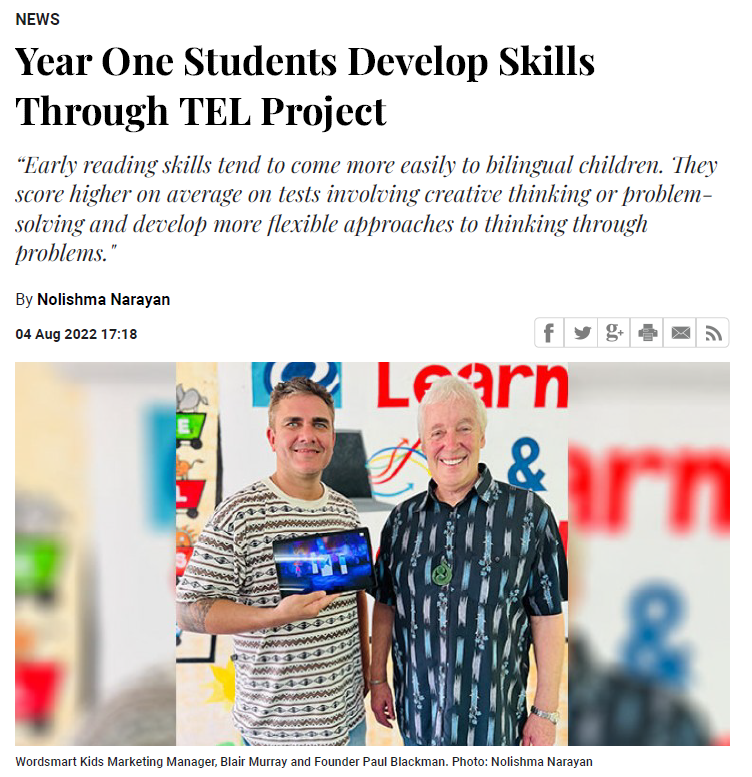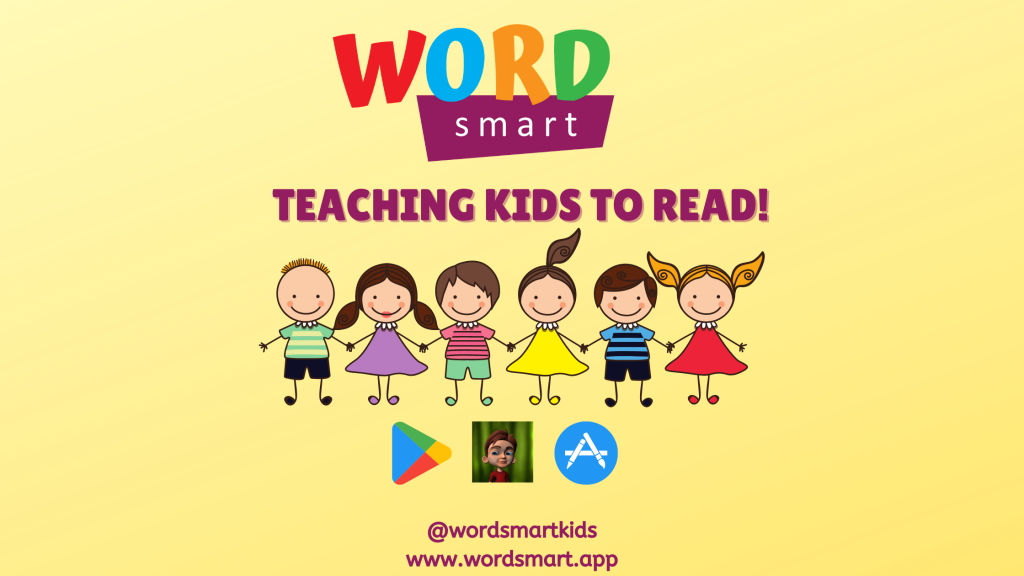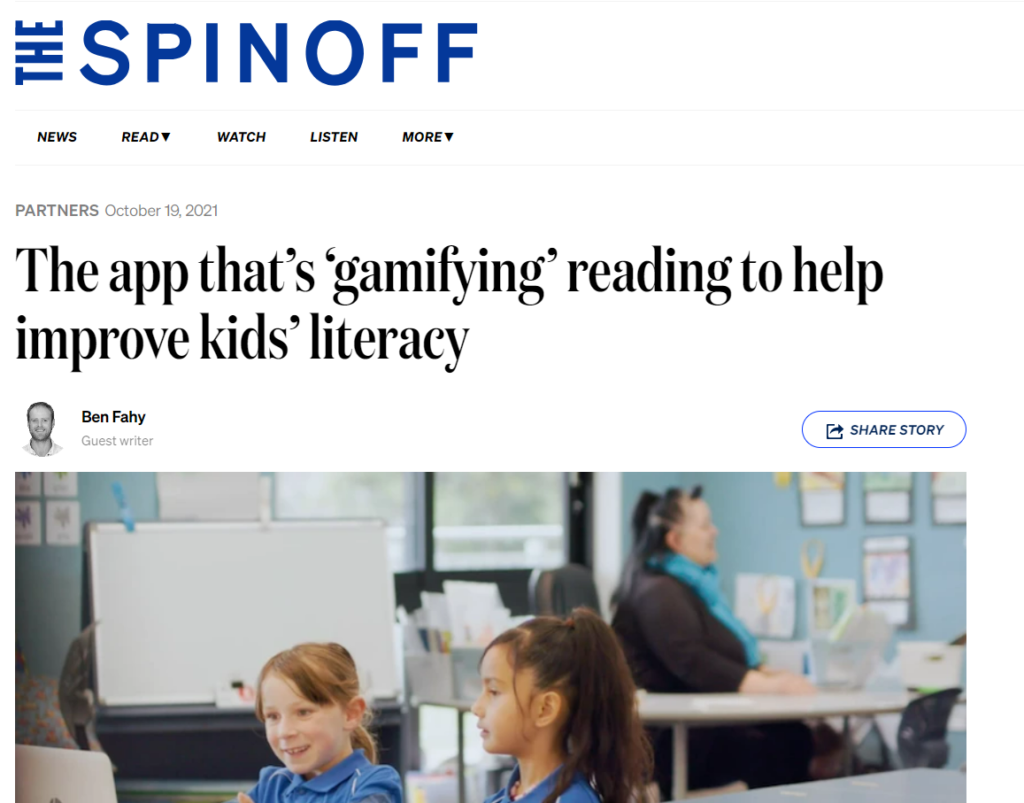In line with the ministries project vision, the founder for Wordsmart Kids was invited from New Zealand to run a pilot with 103 Year One students using the programme wordsmart.
Wordsmart Kids founder, Paul Blackman said they were working closely with manager E- Learning, Dharij Bhartu and Professor Som Naidu ex Pro-Vice Chancellor of the University of the South Pacific.
“It’s early days, but so far my colleague Blair Murray and I have been gob smacked by the students’ progress. There is ample evidence that bi-lingual students have a big advantage,” he said.
“Early reading skills tend to come more easily to bilingual children. They score higher on average on tests involving creative thinking or problem-solving and develop more flexible approaches to thinking through problems.”
“And the ability to read and think in two (or more) different languages promotes higher levels of abstract thought, which is important in learning.”
Mr Blackman’s experience as a teacher motivated him start Wordsmart Kids.
“This tool has worked for kids with dyslexia, who have advanced to the normal reading age, because their brain recovers,” he said.
“It’s really developing skills for the future with regards to how to properly use technology and they’ve been taught the right ways not too long so it doesn’t become addictive.
“15 to 20 minutes and then we have some other activities with them. This whole project is a good tool to assist their learning. It brings the kids at a young age into the digital world. So having them on tablets is prepping them for the future.”
Ministry of Education, Heritage and Arts, Manager E-Learning, Dhiraj Bhartu, said technology was progressively being integrated into education delivery to complement the face-to-face delivery, to provide a richer learning experience to our children who were more digital natives than ever before.
120 tablets were provided for three Year 1 classes and will only be used in school. “Plans are in place to extend to other schools. Each school is allocated Free Education Grants (FEG) and within the FEG there is an allocation for information technology (IT).
The allocation stands at 15 per cent of the total FEG and schools can use this to sustain technological advancements.
Background
Delainamasi Government School in Nasinu is the first school in Fiji selected by the Ministry of Education, Heritage and Arts for a Technology Enhanced Learning (TEL) project.
During the 2021-2022 Revised Budget, the Ministry of Economy had given money to the Education Ministry to set up a school which would symbolise how a future classroom should look like. They will start from lower classes and then move to high schools.
Ministry of Education’s Permanent Secretary Anjeela Jokhan said about $108,000 had been allocated for the TEL project.
—-
https://fijisun.com.fj/2022/08/04/year-one-students-develop-skills-through-tel-pro



